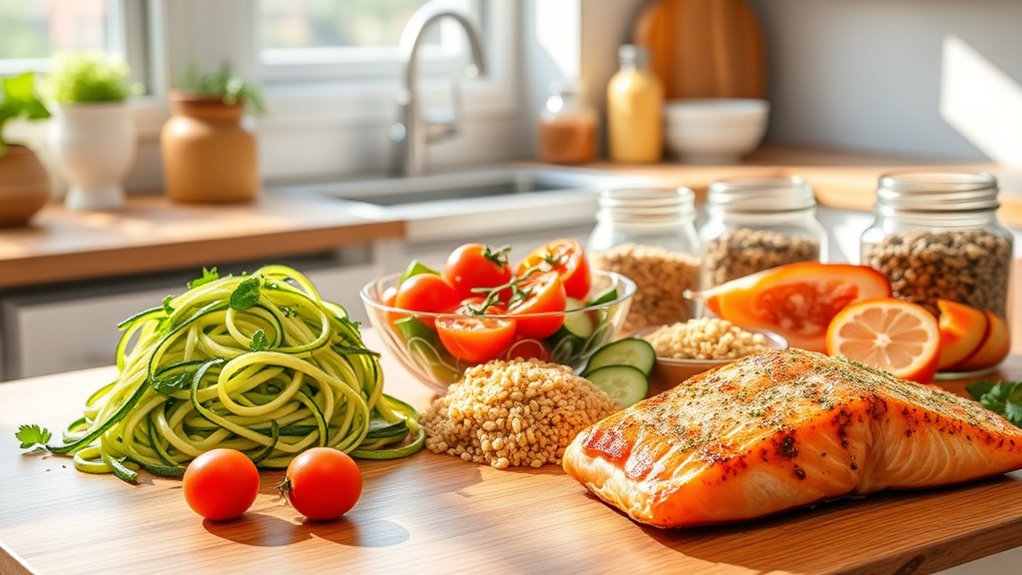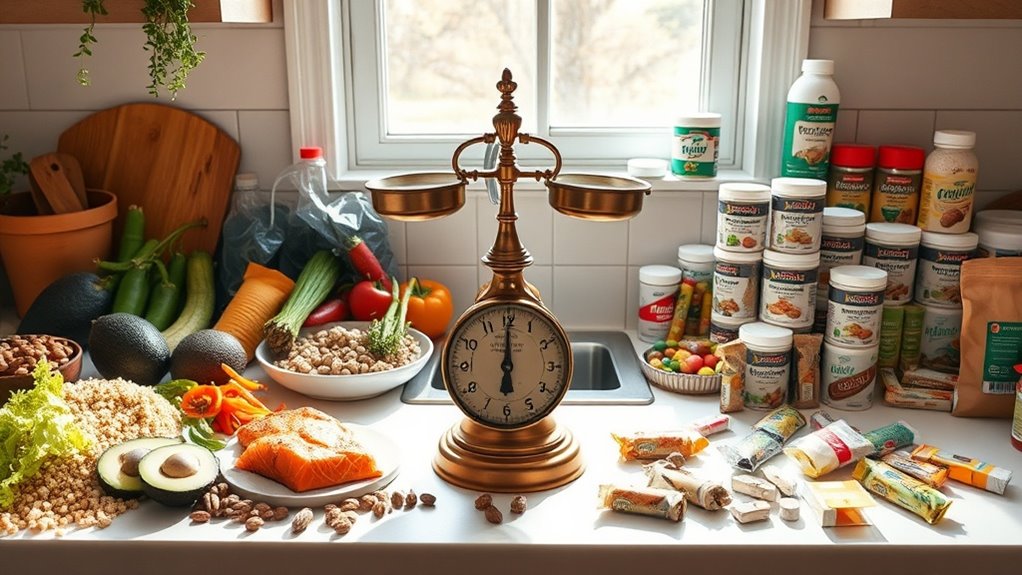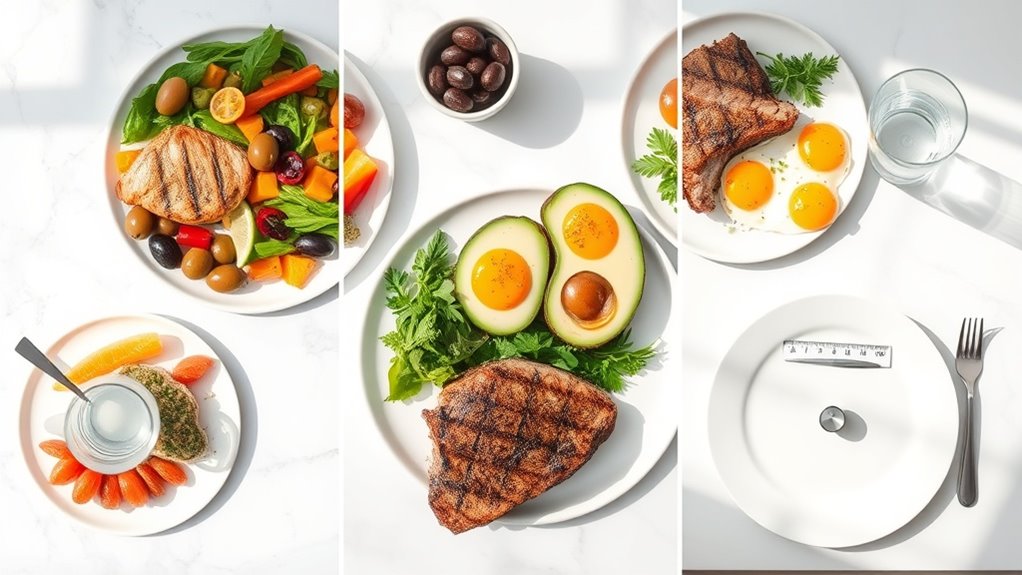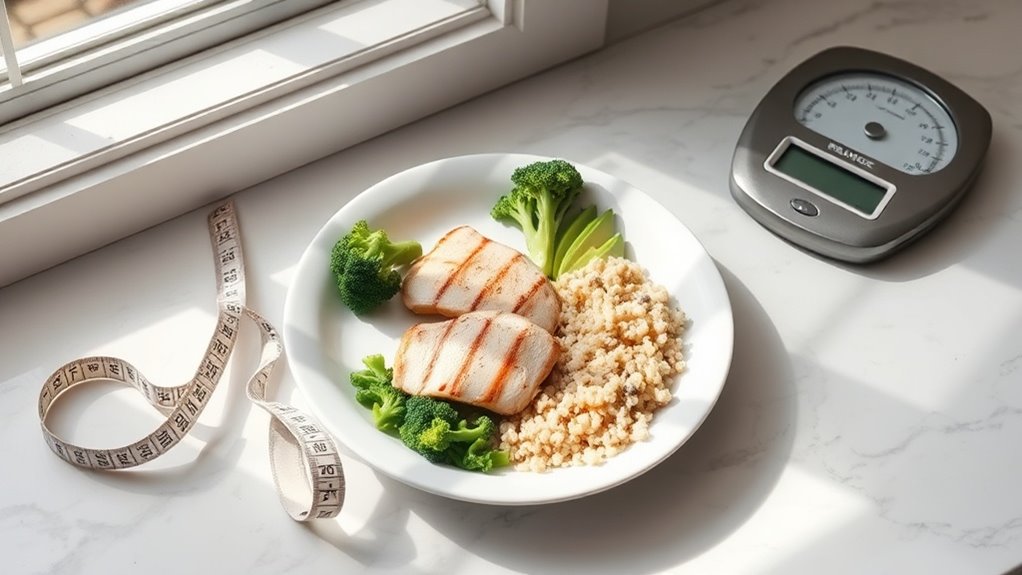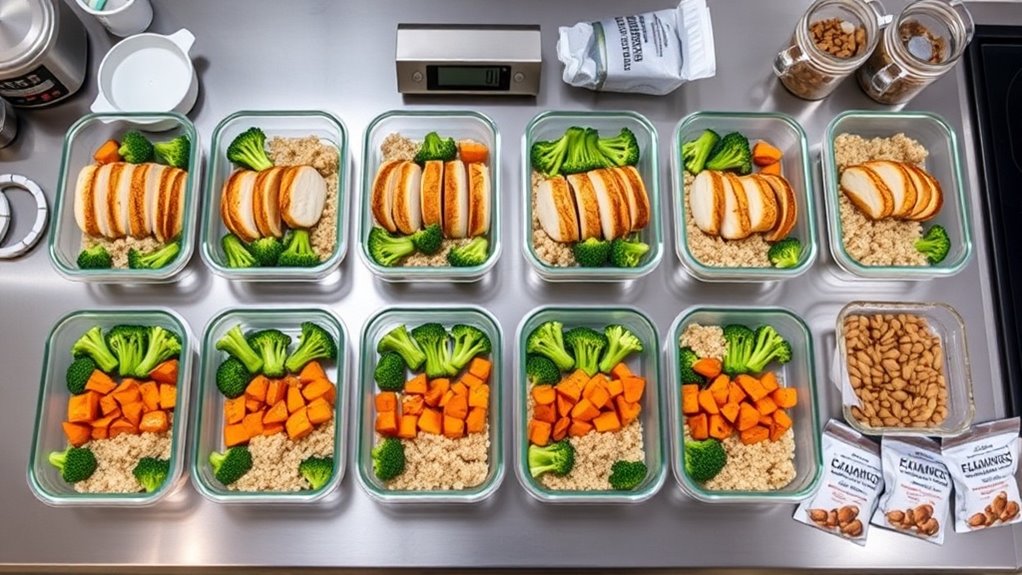What Dieticians Eat to Stay Lean-You’ll Be Surprised
Dieticians prioritize balanced meals filled with whole foods to stay lean. For breakfast, they opt for high-protein options like Greek yogurt or eggs. Energizing snacks include nutrient-dense choices like almonds and veggies with hummus. Lunchtime staples feature lean proteins and whole grains, while dinner often consists of salmon or chicken paired with non-starchy vegetables. Hydration plays a key role too. You might be surprised by how easy it is to incorporate these strategies into your lifestyle.
Breakfast Choices That Boost Metabolism
When it comes to jumpstarting your metabolism in the morning, selecting the right breakfast can make all the difference.
Nutritionist meal ideas often include high-protein options like Greek yogurt, eggs, or smoothies packed with greens and seeds.
Incorporating whole grains, such as oatmeal, can keep you fuller longer and help maintain steady energy levels throughout the day, enhancing your overall metabolism. Additionally, fiber-rich foods play a crucial role in promoting satiety and reducing hunger, which supports sustained energy throughout the day.
Energizing Snacks for Sustained Energy
Although you might reach for sugary snacks when energy dips, choosing the right snacks can provide sustained energy throughout the day. Opt for nutrient-dense options like nuts, yogurt, or hummus with veggies. Here’s a handy table to help you select energizing snacks:
| Snack | Benefits | Portion Size |
|---|---|---|
| Almonds | Healthy fats, fiber | 1 oz (23 nuts) |
| Greek Yogurt | Protein, probiotics | 6 oz |
| Carrot Sticks | Vitamins, low-calorie | 1 cup |
Incorporating fiber-rich options into your snacking routine can help keep you feeling full and satisfied longer.
Lunchtime Staples for Balanced Nutrition
Finding the right lunchtime staples can make a significant difference in your nutrition and energy levels.
Focus on balanced options like whole grains, lean proteins, and plenty of vegetables. For instance, quinoa paired with grilled chicken and colorful veggies provides essential nutrients.
Additionally, don’t forget healthy fats like avocado, which can improve satiety and flavor, keeping you energized throughout the afternoon. Incorporating budget-friendly grocery shopping strategies can help you maintain nutritional balance without overspending.
Smart Dinner Options for a Lean Lifestyle
Choosing smart dinner options can significantly impact your overall health and support a lean lifestyle.
Opt for lean proteins like salmon or chicken breast, paired with plenty of non-starchy vegetables. Whole grains like quinoa or brown rice can provide needed fiber.
Limit added sugars and unhealthy fats. Practice mindful eating by savoring each bite, which can help you feel satisfied with smaller portions. Aligning your meal timing with optimal eating windows can further enhance energy utilization and support your weight management goals.
Creative Ways to Incorporate Superfoods
Incorporating superfoods into your meals isn’t just a trend; it’s a smart move for boosting your nutrition and adding variety to your diet.
Try these creative ideas:
- Add chia seeds to smoothies or yogurt.
- Toss quinoa into salads for extra protein.
- Blend kale into soups for a nutrient boost.
- Use acai berries in homemade energy bars.
Additionally, adding nutrient-dense snacks like Greek yogurt parfaits or nut butter energy balls can further enrich your diet and keep you satisfied throughout the day.
These simple changes can elevate your meals!
Hydration Strategies Dieticians Swear By
While you might focus on nutrient-rich foods, staying adequately hydrated is just as crucial for your overall health.
Dieticians often suggest sipping water throughout the day instead of chugging large amounts at once. They also recommend infusing water with fruits or herbs for flavor.
Additionally, tracking your intake with an app helps ensure you’re meeting your hydration goals consistently.

